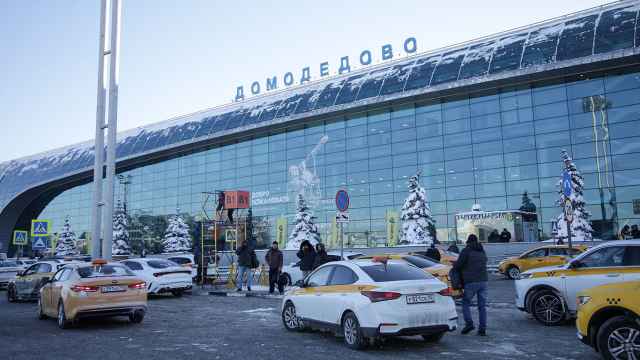In the late 1960s, I attended a university in Singapore. My dormitory roommate was a 19-year-old American student. He hung pictures of Che Guevara and Mao Zedong on the wall and spent days on end writing a treatise about when and how the “rotten capitalist system” in the United States would be overthrown.
In the 1970s, I worked as the Soviet consul in San Francisco. Every month or so, a crazed American anarchist would approach me and ask the consulate to provide dynamite or Kalashnikov machine guns to fight the “imperialist pigs” in Washington and cleanse U.S. society of the “capitalist filth.”
In the 1980s, I served at the Soviet Embassy in Beijing where the Chinese orthodoxy was already complaining that reformist leader Deng Xiaoping had betrayed Communist ideals, sending the country down the “slippery capitalist road.”
Now, in the 21st century, we have WikiLeaks founded by anarchist and anti-imperialist Julian Assange who is driven by a hatred for capitalism and the United States. In the modern age of the Internet, Kalashnikovs and dynamite are no longer necessary to try to overthrow the enemy. Modern technology and outstanding hacking skills allow anarchists to help weaken the United States, the citadel of capitalism.
Undoubtedly, WikiLeaks delivered a heavy blow to the United States. First, it showed the world that U.S. diplomats might smile to your face while they sharpen their knives behind your back.
Second, WikiLeaks exposed the vulnerability of the world’s most powerful country. Seasoned spies used to hunt for years for a single page of classified information, but WikiLeaks and its alleged main leaker, U.S. Private Bradley Manning, in one fell swoop scored more than 500,000 classified and secret U.S. military and diplomatic documents.
Third, the leaks will surely discourage the world from dealing candidly with the United States. Let’s say, for example, that Russia (or any other country) wanted to sign a secret agreement with Washington on a plan to arrest a top Afghan drug lord. Before any U.S. partner signs the agreement, it will wonder if the details of the operation will be splashed across the Internet before the plan can be executed.
Finally, WikiLeaks will surely inspire copycats who are just as zealous as Assange to undermine the United States at all costs.
Thanks to the cables, Russia and most of the world are once again laughing at Uncle Sam’s gullibility and criticizing the United States for being two-faced. Surely, Russia’s diplomats will now be more tight-lipped in dealing with U.S. diplomats.
But it is highly unlikely that the cable leaks will have a serious impact on U.S.-Russian relations — all the more so since the two sides have achieved a lot in the past two years in terms of the reset. U.S. President Barack Obama rejected former President George W. Bush’s proposal for a missile defense system in Poland and the Czech Republic, which was a large sore spot in U.S.-Russian relations. Second, New START was signed in the spring. Third, Moscow and Washington have been cooperating in Afghanistan and the Middle East and on nuclear nonproliferation, the war on global terrorism, organized crime, drug trafficking and piracy. Fourth, tensions have relaxed between the two powers in the former Soviet republics, particularly with regard to Ukraine and Central Asia. Finally, the White House and most Democrats in Congress favor approving Russia’s membership in the World Trade Organization, and U.S. political and business circles have shown interest in participating in the Skolkovo innovation project.
Nonetheless, problems still exist. U.S. Republicans who are against the reset in principle are pulling some old skeletons out of the Cold War closet by arguing that New START weakens U.S. national security and that the United States should not revoke the Jackson-Vanik amendment. In addition, a political showdown is likely if the United States does not accept the Kremlin’s proposal for “sectoral” missile defense. President Dmitry Medvedev and Prime Minister Vladimir Putin both warned recently that a U.S. rejection of the proposal could lead to a new arms race.
Moreover, NATO has not abandoned its strategy of expansion in the direction of the former Soviet republics, the United States remains committed to building alternative gas and oil pipelines from Central Asia that bypass Russia, and serious disagreements remain over Georgia, Abkhazia and South Ossetia. The recent visit of U.S. Secretary of State Hillary Clinton to Central Asia underscores that U.S.-Russian competition for influence in the region remains. All of these factors work against the reset.
Nonetheless, United States has no other choice than to continue cooperating with Russia in the multipolar world order in which Washington can no longer play the role of a single superpower. It will have to decrease its global ambitions and behave more flexibly, modestly and as an equal with others. In this context, recall the words of former Chinese leader Mao Zedong, who described U.S.-Soviet relations in the 1960s and 1970s in the following manner: “The world’s two superpowers, the Soviet Union and the United States, are always colliding and colluding. The more they collide, the more they collude.” U.S.-Russian relations will continue in this fashion, but let’s hope that Moscow and Washington will do more talking and less fighting.
Of course, radical, anti-
establishment rebels like Assange and Che Guevara will always make themselves known in the modern world. This planet is full of problems, and the desire to establish order, justice and equality will continue to spawn revolutionary movements to build socialism and to return to the old, discredited egalitarian notion of “from each according to his ability to each according to his need.” This means that we will continue to hear from time to time the old calls from various anarchists and revolutionists to “steal from ‘the rich’ who stole from the people” and to destroy the evil imperialist countries that are ruling and exploiting the world.
Yevgeny Bazhanov is vice chancellor of research and international relations at the Foreign Ministry’s Diplomatic Academy in Moscow.
A Message from The Moscow Times:
Dear readers,
We are facing unprecedented challenges. Russia's Prosecutor General's Office has designated The Moscow Times as an "undesirable" organization, criminalizing our work and putting our staff at risk of prosecution. This follows our earlier unjust labeling as a "foreign agent."
These actions are direct attempts to silence independent journalism in Russia. The authorities claim our work "discredits the decisions of the Russian leadership." We see things differently: we strive to provide accurate, unbiased reporting on Russia.
We, the journalists of The Moscow Times, refuse to be silenced. But to continue our work, we need your help.
Your support, no matter how small, makes a world of difference. If you can, please support us monthly starting from just $2. It's quick to set up, and every contribution makes a significant impact.
By supporting The Moscow Times, you're defending open, independent journalism in the face of repression. Thank you for standing with us.
Remind me later.





